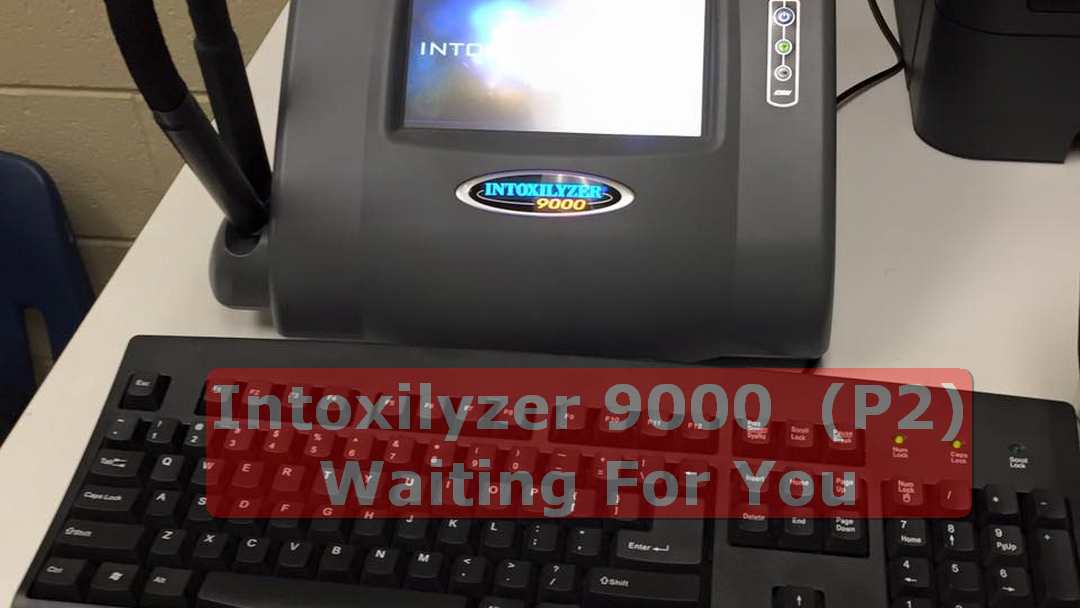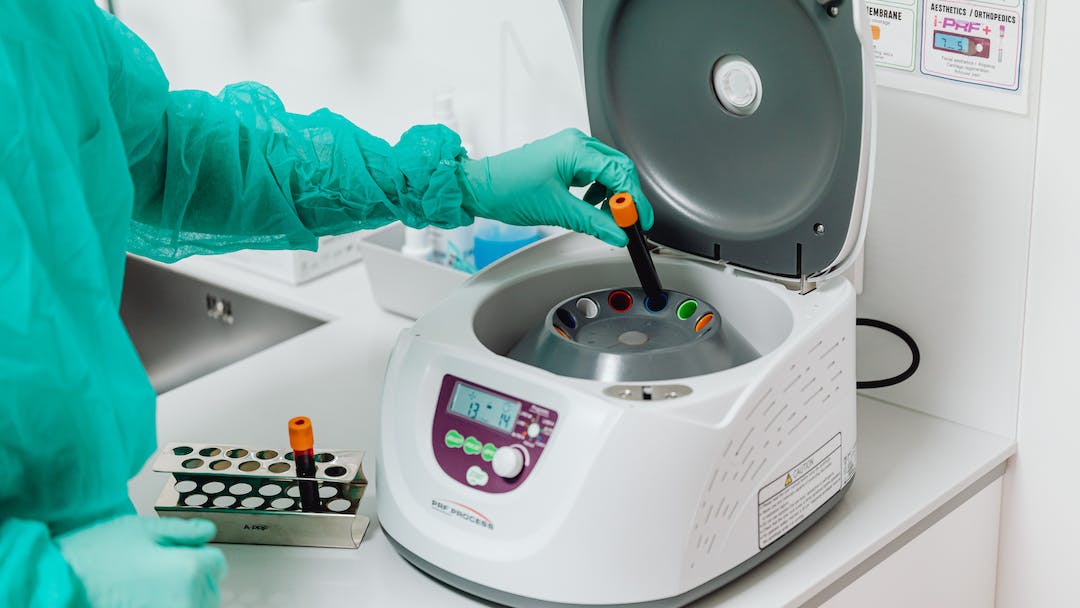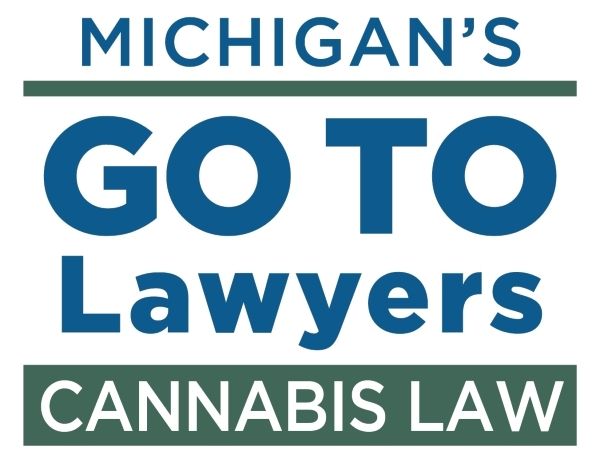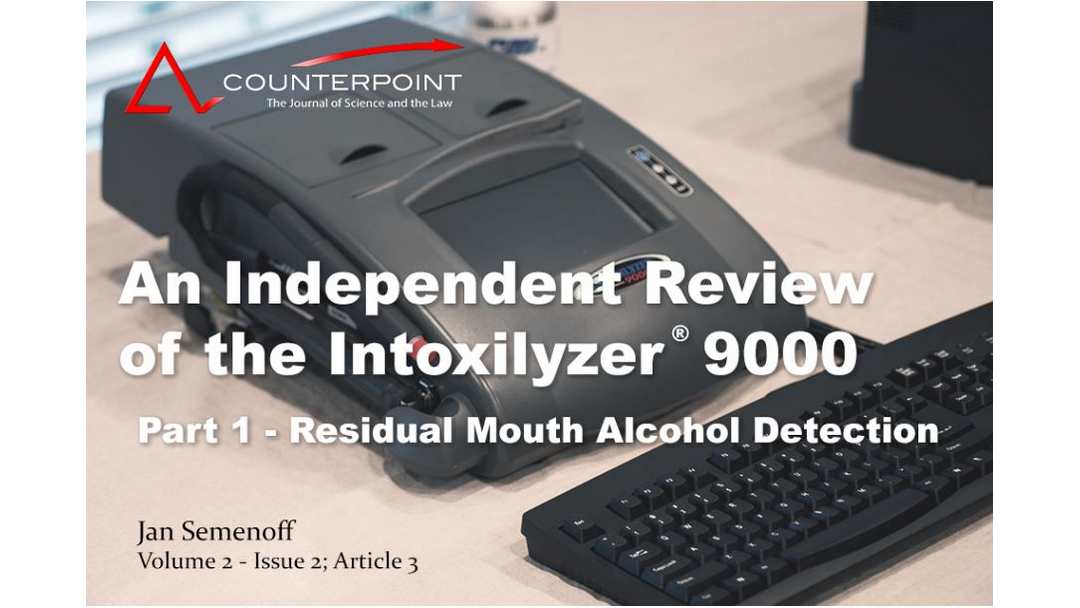Same Thing - Different DayWhitmer's $3B plan to fix Michigan roads calls for more corporate, marijuana taxes, taxes at the pump and you can just imagine the ones you don't know about.Michigan Governor Gretchen Whitmer has introduced a comprehensive three billion...
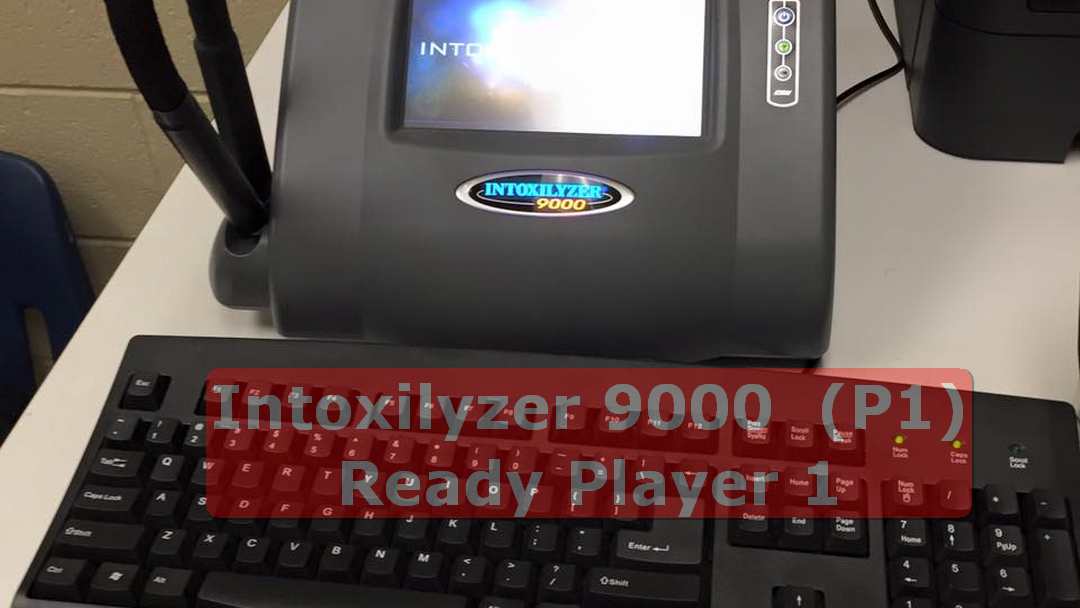
The Intoxilyzer 9000 (part 1)
The Intoxilyzer 9000 (part 1 of 2)
Roll-Out
The Michigan State Police (MSP) initiated Intoxilyzer 9000 (Intoxilyzer) training for police officers statewide, commencing in 2023. In order to participate, officers were required to complete both preliminary breath test (PBT) operator certification and PBT calibration certification.
Then officers were required to complete a PowerPoint training before attending a two-hour hands-on training session in person with MSP.
In July 2023, MSP commenced the installation of the Intoxilyzer at each jail or police agency that possessed a DataMaster DMT (DataMaster) and replaced the existing machine. By mid-October 2023, the new device was expected to be installed in all areas of the state.
Technical Differences
The DataMaster utilizes a pair of filters to effectively differentiate ethanol (the sought-after consumable alcohol by the police) from other organic compounds.
The narrow bandpass optical filters, centered at 3.44 microns, are strategically designed to isolate the specific wavelengths of light absorbed by alcohol and effectively block out any other interfering wavelengths. These filters, placed in the optical path, ensure accurate measurement of the unknown substance by precisely filtering out unwanted light.
However, it is worth noting that methanol and acetone can also be absorbed at the 3.4 micron level, meaning that the device may potentially register acetone or methanol as ethanol. This issue becomes particularly critical for individuals with diabetes who are experiencing ketoacidosis, as they tend to have acetone present in their airways.
The Intoxilyzer has four filters, including one in the 9 micron level, where ethanol and acetone do not appear. This should mean the Intoxilyzer is better able to filter out acetone and methanol.
However, because CMI, Inc. (CMI), the company that sells the Intoxilyzer, will not sell an Intoxilyzer to any entity other than law enforcement, this principle cannot be tested.
The Intoxilyzer’s filters utilize pulsed infrared technology, effectively eliminating the need for chopper motors or mechanical filters in the analytical system. Instead, it employs a digitally controlled pulsed infrared source, eliminating the use of moving parts and thus enhancing the durability of the filter mechanism, ensuring long-lasting performance.
In addition, the DataMaster used a quartz internal standard to make sure the machine remained in calibration. Quartz is a stable material with a known absorption rate.
The DataMaster would move a thin quartz plate in front of the infrared beam and the machine would compare the absorption to the known absorption rate at its initial calibration. If it was within tolerance, the DataMaster would report, “internal standard verified.”
The Intoxilyzer has done away with the quartz internal standard in favor of an actual dry-gas test to verify that the machine remains in calibration.
While CMI touts the dry-gas test as a better internal standard, there are two issues that may make it not as good as a constant standard like the quartz plate.
First, the dry gas is supposed to be measured at 0.08, but the Intoxilyzer allows any result between 0.074 to 0.084 to verify the machine’s internal standard.
The target of 0.08, which is affected by changes in barometric pressure, is addressed by the dry-gas test through an automated adjustment process. This adjustment is made using an algorithm including a correction factor based on the barometer reading at the time of the test.
Related Articles
Whitmer’s $3B plan to fix Michigan’s roads calls for more taxes
Making terrorist threat or false report of terrorism is free speech?
Making terrorist threat or false report of terrorism is free speech?The US Constitution and Michigan Constitution prohibit the government from making laws that abridge the freedom of speech Summary In the case of People of the State of Michigan v. Michael Joseph...
Qualifying for a Public Defender in Michigan
In Michigan, individuals charged with a crime have the constitutional right to legal representation.In Michigan, individuals charged with a crime have the constitutional right to legal representation. For those unable to afford a private attorney, the state provides...
Earned Sick Time Act – 2025 New Laws in Effect for Michigan
Some laws in effect in 2025 "Enacted by the People of Michigan" Here we go...remember these laws can change at any moment because that's what the politicians do that you don't.Earned Sick Time Act Because everyone is sick...sometimes Read more on your own time.AN ACT...
More Posts

If I renounce my US citizenship can I get it back?
Venezuela or Bust If I renounce my U.S. citizenship can I get it back?Renouncing U.S. citizenship is a serious legal action. It involves voluntarily giving up your...

New Laws in Effect for Michigan in 2025
Some laws in effect in 2025 "Enacted by the People of Michigan" Here we go...Minimum wage Improved Workforce Opportunity Wage Act - Michigan's minimum wage will...

The Police Took Your Cellphone – Now What?
Everything you have and say will be evidence used against you. The Police took your cellphone - Now what?After your arrest, you arrive at the police station where you...

Feeling Bullied? Here’s Michigan’s Anti Bullying Laws.
Michigan Anti-Bullying Laws & Policies Components of State Anti-Bullying Laws and Regulations How are bullying and cyberbullying defined in Michigan anti-bullying...

Former 3M scientist who made unsettling PFAS discovery says bosses deceived her
Gee - What a surprise... When a former 3M scientist discovered the company’s chemicals were in human blood in the general population, she says her bosses misled her to...

Drones – What Drones?
Jersey cops launched into the night sky with catapults to throw dreamcatchers at the unknown drones to entangle their props and bring em down! Just kidding - I...

Cash For Kids Judge Pardoned (The Kickback Club)
Biden’s commutation for Judge in ‘kids for cash’ scandal should anger the entire universe.Biden’s commutation in ‘kids for cash’ scandal. BY MICHAEL RUBINKAMUpdated...

How Much Does It Cost To Hire a Criminal Defense Attorney?
Don't do the crime - if you can't pay the price.Average Flat Fees. Some criminal defense attorneys charge a flat fee for certain types of cases, instead of billing by...

What do you do when you are pulled over for suspected DUI?
If you are pulled over for suspected drunk driving you are probably going to be arrested. The less you say - the better off you are in the long run. If you find...
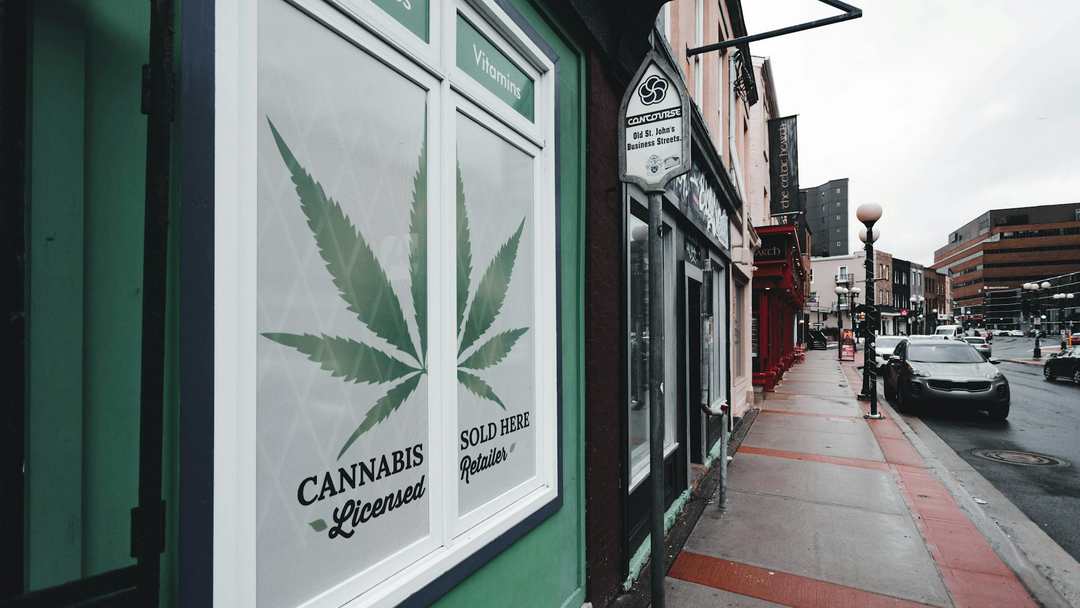
Trump plans – How does Cannabis Business fit in?
You work hard. Now get ready to work harder to prepare to give more.President Biden's administration has proposed the reclassification of marijuana from a Schedule I...






